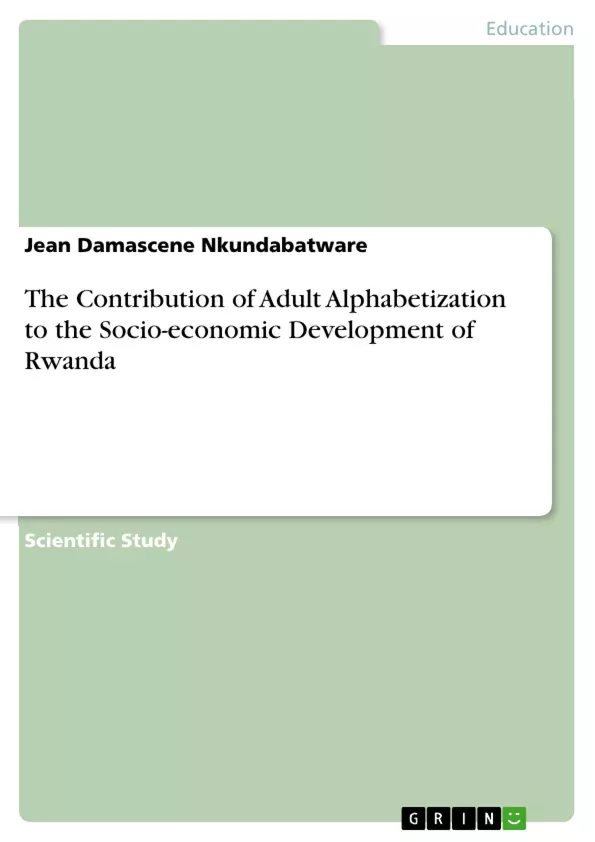Alphabetization, or the mastery of printed information for everyday use at home, work, and in the community, is crucial for personal advancement and knowledge expansion. In Rwanda, high levels of illiteracy among the population pose significant barriers to socio-economic development at both individual and national levels. Recognizing this challenge, the Education for All (EFA) initiative in Rwanda aims to transform citizens into skilled human capital, thereby fostering socio-economic progress by promoting equitable access to quality education and addressing illiteracy.
This study employs a descriptive design and scientific methodologies to investigate the impact of alphabetization on various aspects of socio-economic well-being. Data collection utilized questionnaires, with analysis conducted using SPSS v21 software, incorporating descriptive statistics and correlation analysis.
The findings reveal compelling results: alphabetization significantly enhances the ability to generate income, with 88% demonstrating improved proficiency in income-generating activities. Moreover, 95% exhibit improved capacity to afford health insurance, and 98% are better equipped to invest in educational assets. Notably, the study demonstrates a marked increase in income levels, ranging from 4% to 65%, among participants of adult alphabetization programs, particularly those earning below 30,000 RWF These outcomes underscore the critical role of alphabetization in poverty reduction and enhancing the overall well-being of the Rwandan population, aligning with the government's broader objectives.
Inhaltsverzeichnis (Table of Contents)
- ABSTRACT
- GENERAL INTRODUCTION
- PROPBLEM STATEMENT
- METHODOLOGY
- FINDINGS
- CONCLUSION AND RECOMMENDATION
- REFERENCE
Zielsetzung und Themenschwerpunkte (Objectives and Key Themes)
The study examines the impact of adult alphabetization programs on socio-economic development in Rwanda, focusing on Gatsibo District in the Eastern Province between 2009 and 2012. The study aims to understand how alphabetization contributes to individual and national development in Rwanda.
- The impact of alphabetization on individual income and economic activity
- The relationship between alphabetization and access to healthcare and other social services
- The role of alphabetization in promoting civic engagement and social participation
- The challenges and opportunities associated with adult alphabetization programs in Rwanda
- The potential of alphabetization to contribute to poverty reduction and sustainable development
Zusammenfassung der Kapitel (Chapter Summaries)
- ABSTRACT: This chapter provides a brief overview of the study, highlighting the importance of alphabetization in socio-economic development, the research methodology, and the key findings.
- GENERAL INTRODUCTION: This chapter defines alphabetization and explores its significance in individual and societal development. It emphasizes the importance of literacy for participation in a knowledge-based society and its role in fostering lifelong learning.
- PROPBLEM STATEMENT: This chapter identifies the challenges of illiteracy in Rwanda and its impact on socio-economic progress. It discusses the need for adult alphabetization programs to address these challenges and improve the quality of life for individuals and the nation.
Schlüsselwörter (Keywords)
Adult alphabetization, socio-economic development, Rwanda, Gatsibo District, poverty reduction, education, literacy, human capital, skills development, civic engagement, sustainable development.
- Quote paper
- Jean Damascene Nkundabatware (Author), 2021, The Contribution of Adult Alphabetization to the Socio-economic Development of Rwanda, Munich, GRIN Verlag, https://www.grin.com/document/1446723



